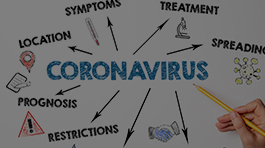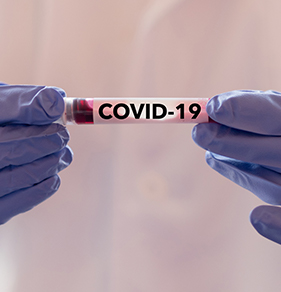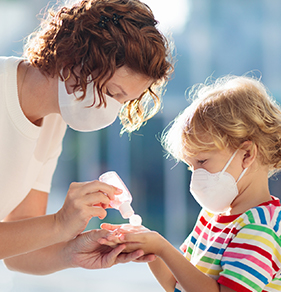November 3, 2021
With the holidays quickly approaching and COVID-19 and flu season upon us, many have questions about how to enjoy festivities safely.
#1: As we head into the holidays, where are we in the pandemic?
The pandemic isn’t over, but if you’re vaccinated, you should be able to do all of the things that are most important to you by taking reasonable precautions. We have the tools we need — vaccines, boosters, masks, home tests, even air cleaners — to help lower risk and get back to “normal” life.
#2: How can I get COVID-19 news regarding the area I’m traveling to?
Most city and state health department websites provide guidance. However, the best place to start your search is on the CDC website with their “COVID-19 County Check Tool” that can be found here: https://www.cdc.gov/coronavirus/2019-ncov/more/aboutcovidcountycheck/.
#3: How should I prepare for the colder months?
To start, get vaccinated, get your booster if recommended, get eligible kids vaccinated, get a flu shot, and wear a mask in high-risk situations. We still have to take precautions, but it’s so much better than last fall and winter when nobody was vaccinated.
I would still avoid indoor crowds in places with poor ventilation. It’s always safer to socialize outdoors, but I don’t think you have to freeze outside to see others this year. If everyone at your small indoor gathering is vaccinated, symptom-free, and taking precautions in daily life, you can trust your vaccine to protect you. If someone in your group is medically vulnerable, consider asking everyone to screen with a home test.
#4: What lessons from last fall and winter should I keep in mind?
I think it’s important to remember that the risk is cumulative even if you’re vaccinated. Decide your priorities. For instance, keeping your kids in school, seeing family during the holidays, spending time with close friends — that’s probably the priority stuff. Budget your risk and skip the unimportant things that have risk. For instance, don’t go to a crowded holiday party two days before you visit grandma.
#5: What is the best way to serve food to relatives? Can I serve it family style? How much do I need to clean surfaces?
Gathering indoors with unvaccinated people in a close setting with lots of loud talking or singing is high risk. Cleaning often isn’t likely to make a big difference, nor is the way you serve it.
#6: Can I get my flu shot and a COVID-19 booster on the same day?
Yes, it is perfectly fine to get the booster or even the primary series on the same day. The CDC recommends getting them in different arms or at least an inch apart if in the same arm. Getting more than one vaccine at the same time is not unusual – we have many combination vaccines, and these are given routinely to infants.
#7: Why are people saying it might be a bad flu season?
Flu immunity comes in two ways: through natural infection and through vaccines. Because there was so little flu last year, fewer people than usual have protection from infections last season. Therefore, natural immunity is probably lower for many. On the other hand, people are more aware of air-borne viruses, and many are continuing COVID-19 precautions like physical distancing, mask-wearing, and hand-washing – activities that will diminish flu cases.
#8: How effective are the flu shots?
Making the flu vaccine is an annual challenge because it is hard to know which strains will circulate in the coming season, and the flu virus is notorious for mutating quickly. The CDC conducts studies each year to determine how well flu vaccines protect against flu. While vaccine effectiveness will vary every year, recent studies show that flu vaccination reduces the risk of flu illness by between 40% and 60% among the overall population during seasons when most circulating flu viruses are well-matched to those used to make flu vaccines. In general, current flu vaccines tend to work better against influenza B and influenza A(H1N1) viruses and offer lower protection against influenza A(H3N2) viruses.
This article was created by Dr. James Avery and provided to Aegis Therapies, Inc. for informational purposes only, it does not provide medical advice. Due to the everchanging circumstances related to COVID-19, the information can change at any time and therefore, Aegis Therapies, Inc. and its affiliates and subsidiaries do not warrant or guarantee the accuracy of this information. If you have questions, you should conduct your own research.








